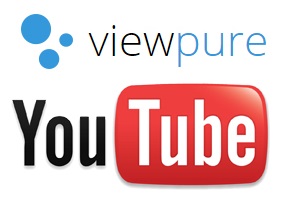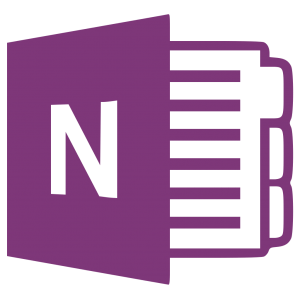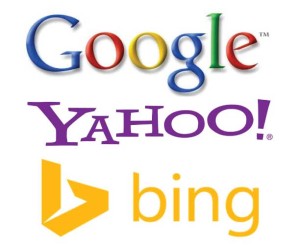 Gullibooking. My Facebook feed is full of it. If you use Facebook then you’ll be familiar with it even if you’ve never heard or noticed it. It’s extremely tall, lighter than a nano-atom, a curious shade of beige and quite possibly hacking into your bank account and ordering 25 copies of Fly Fishing, by JR Hartley, right now. Worried? You should be as fluffy cats, all fast food outlets and quite possibly Donald Trump’s pet guinea pig are all at risk if you don’t take note right now! Gullibooking – it’s all a load of…Read more…
Gullibooking. My Facebook feed is full of it. If you use Facebook then you’ll be familiar with it even if you’ve never heard or noticed it. It’s extremely tall, lighter than a nano-atom, a curious shade of beige and quite possibly hacking into your bank account and ordering 25 copies of Fly Fishing, by JR Hartley, right now. Worried? You should be as fluffy cats, all fast food outlets and quite possibly Donald Trump’s pet guinea pig are all at risk if you don’t take note right now! Gullibooking – it’s all a load of…Read more…
Rate My Teachers: the lost ‘rate’ in moderate
 Had a bad day at work? Has a colleague annoyed you? If so, why not write a review about them and vent, anonymously, your feelings online? No? I’m glad to hear it, but that’s just how one website does work – Rate My Teachers. This website offers students and parents the opportunity to reflect and provide feedback on teachers in their school. On the face of it, I agree that it sounds like a good idea, an opportunity for prospective and current parents to find out exactly what students/parents think of a school and its staff. However, having recently re-visited the site it doesn’t take long to see that is more of a haven for unadulterated venom rather than a place for balanced views and opinions of teachers. I quickly signed-up to be the ‘moderator’ for my school thinking that I could filter out the obvious trolling of some staff, delete feedback for staff who had left and remove some of the more grotesque comments. Much to my surprise, the moderator has very little influence or editing rights. That is, unless you become complicit in the murky world of teacher feedback yourself…Read more…
Had a bad day at work? Has a colleague annoyed you? If so, why not write a review about them and vent, anonymously, your feelings online? No? I’m glad to hear it, but that’s just how one website does work – Rate My Teachers. This website offers students and parents the opportunity to reflect and provide feedback on teachers in their school. On the face of it, I agree that it sounds like a good idea, an opportunity for prospective and current parents to find out exactly what students/parents think of a school and its staff. However, having recently re-visited the site it doesn’t take long to see that is more of a haven for unadulterated venom rather than a place for balanced views and opinions of teachers. I quickly signed-up to be the ‘moderator’ for my school thinking that I could filter out the obvious trolling of some staff, delete feedback for staff who had left and remove some of the more grotesque comments. Much to my surprise, the moderator has very little influence or editing rights. That is, unless you become complicit in the murky world of teacher feedback yourself…Read more…
Teachers: Remove YouTube Adverts Easily
 YouTube is a vast and growing resource which is tapped daily by teachers everywhere. There are so many fantastic videos which can help explain a topic, provide a clear visual demonstration, show an experiment, tackle a political issue, carefully present a controversial issue etc. in way that is often not possible via traditional methods i.e. the teacher talking to the class. It is a resource that rightly deserves to be a prime place for educators to search for content to use in their lessons. Of course, there are two problems with YouTube when using it in the classroom: the adverts and the comments. These can often be highly distracting and, sometimes, inappropriate. I recently rediscovered a helpful online tool that helps me remove YouTube adverts and comments.Read more…
YouTube is a vast and growing resource which is tapped daily by teachers everywhere. There are so many fantastic videos which can help explain a topic, provide a clear visual demonstration, show an experiment, tackle a political issue, carefully present a controversial issue etc. in way that is often not possible via traditional methods i.e. the teacher talking to the class. It is a resource that rightly deserves to be a prime place for educators to search for content to use in their lessons. Of course, there are two problems with YouTube when using it in the classroom: the adverts and the comments. These can often be highly distracting and, sometimes, inappropriate. I recently rediscovered a helpful online tool that helps me remove YouTube adverts and comments.Read more…
Get Ready for OneNote in the Classroom
 Are you thinking of using OneNote in the classroom for the first time? If so, excellent! It’s a fabulous piece of software which has the potential to revolutionize the way students access, store, annotate and develop their work and ideas. I’ve gushed about OneNote on this blog previously stating that “OneNote has completely revolutionised how I work“. I still stand by these words and having used OneNote successfully for the past year, I recently introduced the software into my classes. It’s been a bumpy ride and there have been moments when I honestly felt like taking a hammer to several personal devices. I’m here to share my experiences and give you a few tips on how to get the best out of OneNote if you’re using, or planning on using, OneNote in the classroom for the first time.
Are you thinking of using OneNote in the classroom for the first time? If so, excellent! It’s a fabulous piece of software which has the potential to revolutionize the way students access, store, annotate and develop their work and ideas. I’ve gushed about OneNote on this blog previously stating that “OneNote has completely revolutionised how I work“. I still stand by these words and having used OneNote successfully for the past year, I recently introduced the software into my classes. It’s been a bumpy ride and there have been moments when I honestly felt like taking a hammer to several personal devices. I’m here to share my experiences and give you a few tips on how to get the best out of OneNote if you’re using, or planning on using, OneNote in the classroom for the first time.
Don’t goggle at Google. Time for a fling with Bing…
 Which search engine do you use? I suspect probably Google. But have you ever stopped and wondered why you use Google rather than another search engine like Yahoo or Bing? I’m pretty sure that most people won’t be able to answer this. No-one blinks at the phrase “let’s Google that” when some online information needs to be gleaned. Google, it seems, is very much hard-wired into our online searching habits. When I first started using the internet, back in the mid-1990s, the most widely used search engine was Altavista. It quickly located webpages (although there weren’t many pages back then) and it had a rather gimmicky button called ‘Random’ which took you, unsurprisingly, to a random webpage. In those early days of the internet I recall spending hours being mesmerized by the reams of information, topics, places and people I had never heard of. I’m pretty certain I can trace my love of the internet back to my student days, wiling away the hours with that random button. Following a brief flirt with Ask Jeeves I quickly became one of the millions of people who use Google every day. I’ve never looked back; until now.Read more…
Which search engine do you use? I suspect probably Google. But have you ever stopped and wondered why you use Google rather than another search engine like Yahoo or Bing? I’m pretty sure that most people won’t be able to answer this. No-one blinks at the phrase “let’s Google that” when some online information needs to be gleaned. Google, it seems, is very much hard-wired into our online searching habits. When I first started using the internet, back in the mid-1990s, the most widely used search engine was Altavista. It quickly located webpages (although there weren’t many pages back then) and it had a rather gimmicky button called ‘Random’ which took you, unsurprisingly, to a random webpage. In those early days of the internet I recall spending hours being mesmerized by the reams of information, topics, places and people I had never heard of. I’m pretty certain I can trace my love of the internet back to my student days, wiling away the hours with that random button. Following a brief flirt with Ask Jeeves I quickly became one of the millions of people who use Google every day. I’ve never looked back; until now.Read more…
Face-off with Facebook: a stand for ‘community standards’
 Extreme graphic violence – acceptable. Nudity – banned. Is this how you would expect Facebook to interpret its own Community Standards?
Extreme graphic violence – acceptable. Nudity – banned. Is this how you would expect Facebook to interpret its own Community Standards?
My Facebook wall recently contained a video which had been shared by one of my friends. “This is amazing!” my friend proclaimed and before I had even decided to watch it or not, the auto-play settings on my phone made the choice for me, and the video began. The opening scene shows an execution. This is followed by a brief moment of animal cruelty and then scene-upon-scene of violent deaths, blood-splattered corpses and trigger-happy shoot-outs. All this is played along to a music track happily entitled Motherf**ker. I felt strongly that this video would be breaching Facebook’s rules given it’s graphic content. I admit that I had never read Facebook’s rules carefully but I was sure that my reporting of the video would have it immediately removed. I was also partly expecting Facebook to be grateful to me for bringing this video to their attention. After all, by sharing a video it can automatically appear on the walls of unsuspecting Facebook friends. Much to my surprise, Facebook rejected my report saying that the video did not contravene its community standards. I was gobsmacked. How could more than 4 minutes of gratuitous graphic violence be considered acceptable by Facebook and thus available to anyone, including the youngest members, of their community?Read more…
When’s your first Online Concert?
 Just a few weeks ago I was heading home, from school, much earlier than normal. As I do every day, I switched on BBC Radio 3 and expected to be treated to the stations usual expertly selected recordings, interesting interviews or even a live performance of some musical gem that I’d never previously heard. However, this day was different. I had forgotten that it was BBC Music Day and I happened to stumble on a world record attempt. The concept of the record attempt was simple – get two choirs, each with a soloist, to sing the same hymn at the same time. The catch – the choirs and soloists would be located more than 12,000km away from each other. To add to the pressure, the joint performance would be broadcast live on radio stations in the two different locations and via the web making this online concert available to anyone in the world. What I experienced, on what would usually be an uneventful journey home, gave me a ‘goosebump moment’. Those wonderful experiences that literally makes your hairs stand on end and tingle with delight.
Just a few weeks ago I was heading home, from school, much earlier than normal. As I do every day, I switched on BBC Radio 3 and expected to be treated to the stations usual expertly selected recordings, interesting interviews or even a live performance of some musical gem that I’d never previously heard. However, this day was different. I had forgotten that it was BBC Music Day and I happened to stumble on a world record attempt. The concept of the record attempt was simple – get two choirs, each with a soloist, to sing the same hymn at the same time. The catch – the choirs and soloists would be located more than 12,000km away from each other. To add to the pressure, the joint performance would be broadcast live on radio stations in the two different locations and via the web making this online concert available to anyone in the world. What I experienced, on what would usually be an uneventful journey home, gave me a ‘goosebump moment’. Those wonderful experiences that literally makes your hairs stand on end and tingle with delight.


 Currently the Head of e‑Learning and a teacher of Music and Computing at a large school in
Currently the Head of e‑Learning and a teacher of Music and Computing at a large school in 
